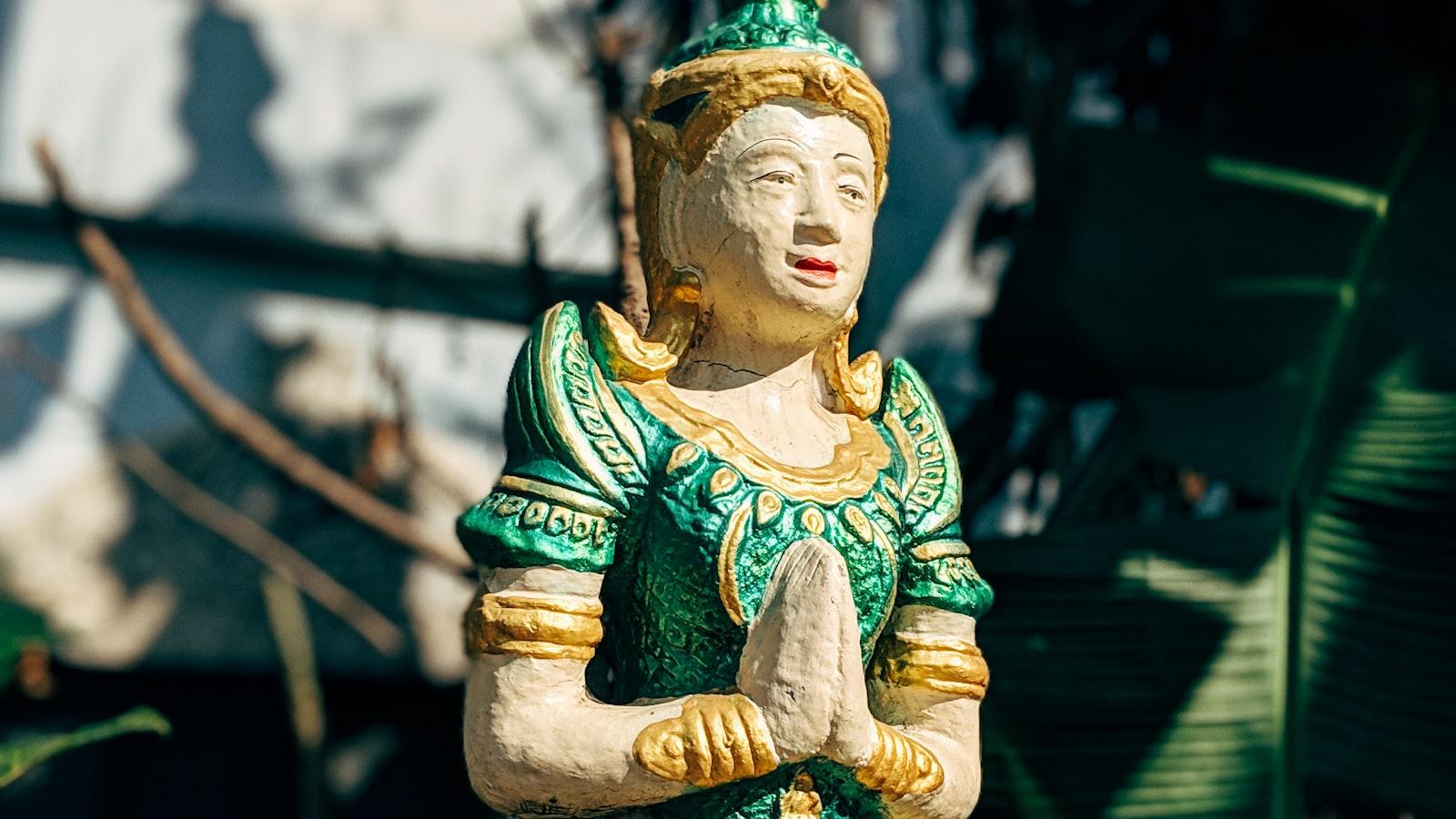In a world swirling with uncertainty and constant pursuits for happiness, one timeless question reigns supreme: Can faith be the key to unlocking the gateway to wellbeing? As countless seekers journey on the winding path to self-discovery, an intricate tapestry of religion, spirituality, and belief unfurls before them. These ethereal threads coexist alongside scientific research, interweaving into the very fabric of human existence. With a neutral lens and a touch of creative curiosity, let us embark on an enlightening exploration of the intricate relationship between faith and wellbeing, delving into the profound influence religion can have on our health. Be prepared to uncover the subtle nuances, the profound mysteries, and the timeless wisdom that lie at the heart of this captivating connection.
The Role of Religion in Promoting Emotional Wellbeing
Religion has long been recognized for its role in promoting emotional wellbeing and overall health. Faith serves as a powerful tool that can provide individuals with a sense of purpose and meaning in life, ultimately enhancing their emotional and psychological states. One way in which religion influences health is through the provision of a community and support system. Places of worship act as gathering spaces where individuals can connect with others who share their beliefs, fostering a sense of belonging and reducing feelings of loneliness and isolation. This sense of community can provide a strong social network that offers emotional support, encouragement, and a feeling of being cared for.
In addition to the social aspects, religion also provides individuals with a set of moral values and guidelines that can promote emotional wellbeing. Many religious teachings emphasize the importance of compassion, forgiveness, and gratitude, which can contribute to the development of positive emotions and mental states. These values can act as guiding principles in one’s life, promoting a sense of self-worth, purpose, and overall life satisfaction. Moreover, religious rituals and practices such as meditation, prayer, and gratitude exercises can offer solace, stress relief, and a sense of inner peace.
| Religion can provide a sense of purpose and meaning in life. | ✓ |
| Religious communities offer support and a sense of belonging. | ✓ |
| Religious teachings promote positive values and emotions. | ✓ |
| Religious rituals and practices offer stress relief and inner peace. | ✓ |

Exploring the Link between Spirituality and Physical Health
Many individuals find solace and strength in their religious beliefs, but did you know that faith can also have a profound impact on physical health? The connection between spirituality and wellbeing has long been explored, with countless studies highlighting the potential benefits of religious practices on various aspects of health.
Mind-Body Connection: One of the key mechanisms through which spirituality influences physical health is the mind-body connection. Engaging in religious rituals, meditation, or prayer can help reduce stress and anxiety, which in turn positively affects bodily functions such as blood pressure, heart rate, and immune response. It is believed that these practices promote a sense of calmness and inner peace, leading to improved overall health and wellbeing.
Social Support: Religion often provides a strong sense of community and social support, which can have significant implications for physical health. Being part of a religious group can create a network of individuals who share similar values, beliefs, and experiences. This social connection not only helps combat feelings of loneliness and isolation but also offers an avenue for emotional support and practical assistance. Research suggests that individuals with strong social networks tend to enjoy better cardiovascular health, faster recovery from illnesses, and increased longevity.
| Spiritual Practice | Health Benefits |
|---|---|
| Meditation | Reduces stress, improves focus, and lowers blood pressure. |
| Prayer | Enhances overall psychological well-being and promotes healing. |
| Gratitude | Fosters a positive mindset and boosts immune system functioning. |
| Forgiveness | Reduces anger, improves heart health, and enhances relationships. |

Religious Practices: A Pathway to Mental Resilience
When it comes to the complex web of factors that influence our overall wellbeing, religion has long been a central pillar in many people’s lives. Beyond its spiritual significance, religious practices have shown remarkable potential in fostering mental resilience and positively impacting one’s health. The tight-knit communities, comforting rituals, and profound sense of purpose that religious beliefs provide can offer individuals a robust support system, aiding them in navigating life’s challenges.
One key aspect of religion that contributes to mental resilience is the strong community bonds it fosters. Places of worship often act as hubs of social interaction, bringing together like-minded individuals who share similar values and beliefs. These communal ties offer a sense of belonging and provide a network of emotional and practical support. Engaging in regular religious practices, such as attending services or participating in group activities, can lead to long-lasting friendships, reducing feelings of loneliness and isolation. Such connections can act as a lifeline during difficult times, bolstering mental wellbeing and promoting a greater sense of overall happiness.

Practical Strategies for Integrating Faith and Wellbeing
When it comes to the intricate bond between faith and wellbeing, religion’s influence on health is undeniable. Beyond providing spiritual solace and guidance, numerous studies have shown that religious beliefs and practices can have a positive impact on mental and physical well-being. Here, we delve into practical strategies that individuals can implement to integrate their faith into their overall wellbeing:
- Cultivate a sense of purpose: Religion often helps people find meaning and purpose in life. Identifying core values and aligning daily activities with one’s faith can bring a sense of fulfillment and contribute to overall wellbeing.
- Engage in regular prayer and meditation: Taking time for prayer and meditation can reduce stress, lower blood pressure, and improve mental focus. Incorporating these practices into daily routines can promote overall health and enhance one’s spiritual connection.
- Build a supportive community: Joining a religious community or group can offer a sense of belonging, support, and connection. Engaging with others who share similar beliefs can strengthen one’s faith and create an environment conducive to overall wellbeing.
Additionally, here are a few more :
- Practice gratitude: Expressing gratitude for blessings and small joys in life can cultivate a positive outlook, enhance mental well-being, and deepen one’s faith.
- Seek spiritual guidance: Engaging with religious leaders and mentors can provide guidance, encouragement, and a deeper understanding of one’s faith, promoting overall wellness.
By incorporating these strategies into daily routines and actively embracing the influence of faith on wellbeing, individuals can experience a holistic approach to health that encompasses both the physical and spiritual aspects of their lives.
In Retrospect
As we conclude this exploration into the intricate relationship between faith and wellbeing, we embark on a reflective journey that unravels the profound impact of religion on our health. From ancient rituals to modern practices, the phenomenon of belief has an undeniable power to nurture not only our minds, but also our bodies and souls.
Through the mystic lens of faith, we have witnessed the emergence of a parallel domain where hope intertwines with healing, where solace embraces suffering, and where spirituality permeates every aspect of our existence. In this ethereal realm, the enigmatic forces of religion intertwine with the complexities of our physical and mental states, offering a unique sanctuary for those seeking solace and strength.
Faith, as we have seen, transcends superficial bounds to touch the very core of our being. Whether within the walls of magnificent cathedrals, temples, or mosques, or in the humble dwellings of devotees, the essence of religious practices resonates with our innate longing for purpose, connectedness, and understanding. This innate longing is not limited by geography, culture, or individual idiosyncrasies; it is a universal pursuit, uniting us all under the vast canopy of human experience.
Yet, while religion offers unparalleled comfort, it would be remiss to ignore the potential pitfalls that reside within its influence. From the perils of fanaticism to the narrow confines of dogma, the boundaries between faith and fanaticism can become blurred. It is in these moments that a neutral, reasoned approach becomes essential, reminding us to navigate this spiritual realm with caution and an open heart.
As we delve into the interplay of faith and wellbeing, it becomes crystal clear that religion possesses a potent ability to enhance our mental health, providing a sense of belonging, purpose, and hope that transcends the materialistic concerns of our contemporary world. It acts as a balm for wounded souls and a beacon of light amidst turmoil. And yet, beyond any empirical measures, we find that faith has an intangible quality that defies scientific scrutiny, challenging us to ponder the mysteries that lie beyond the limits of our understanding.
So, in this beautifully intertwined dance between faith and wellbeing, let us not only celebrate the healing powers of religion but also approach its multifaceted nature with humility and inquisitiveness. Let us seek to understand, appreciate, and respect the diverse expressions of belief that enrich our shared human experience. And in doing so, may we find the strength to navigate life’s winding paths, drawing solace from the age-old wisdom offered by faith, and discovering our own unique answers on the remarkable journey of living well.


